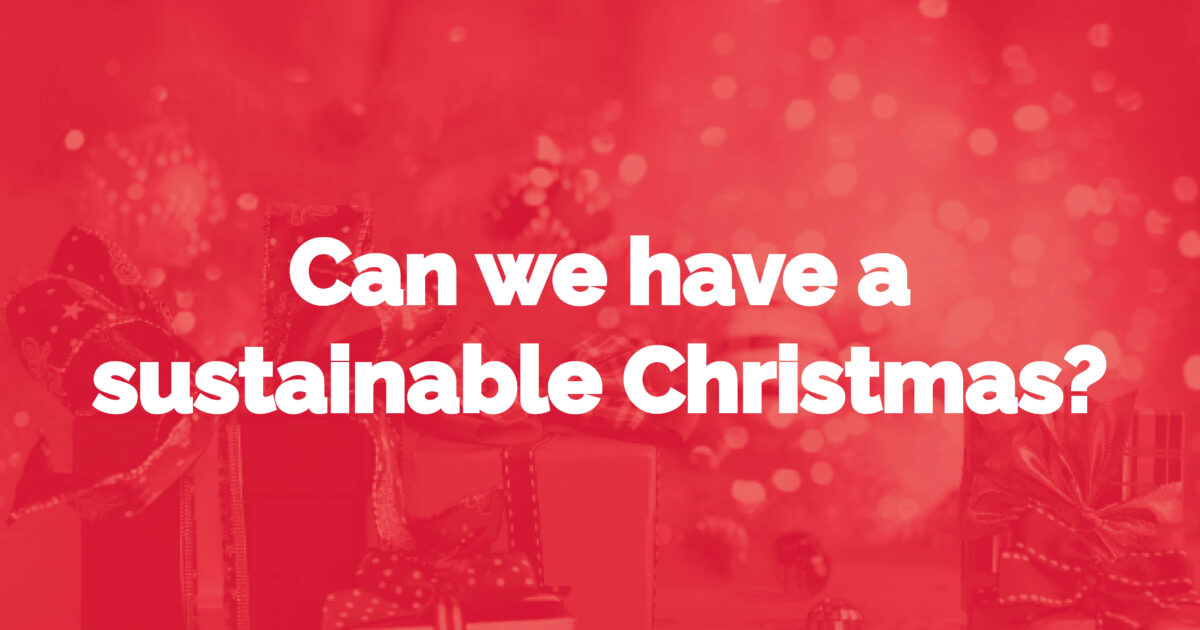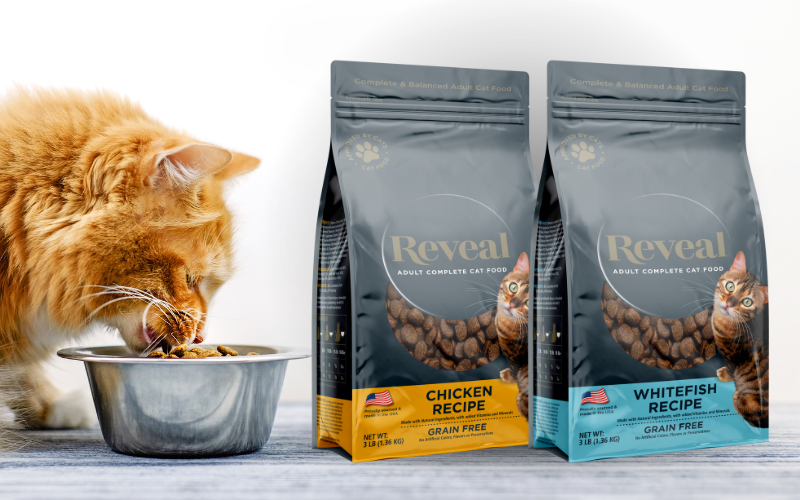You want to lead a responsible lifestyle. You reuse your plastic bags, you put your rubbish in the right bins, and you only use what you need. But do you keep that lifestyle up over Christmas?

According to the Carbon Trust, our carbon footprint during December is 6% higher than in most other months. It’s not hard to see why given the number of presents purchased, extra food consumed (and wasted), and the extra car trips to relatives and friends.
Without meaning to sound like the Grinch, we are all in danger of overlooking our sustainability responsibilities during the festive period but how can we ensure we all have a more sustainable Christmas?
Plastic-free Christmas?
Could you have a sustainable Christmas without plastic? Christmas goes hand-in-hand with consumerism, and unfortunately, consumerism goes hand-in-hand with plastic. You can’t have one without the other. The majority of toys, gifts and decorations are all or at least partly, made of plastic. How many of them do you think will be recycled at end-of-use? Most wrapping paper is tinted or coated with metallic accents that render it non-recyclable, yet how many of us will start Christmas Day with a living room floor full of scrunched-up shiny paper?
Speaking of paper…
According to Imperial College researchers, UK households throw away an unbelievable 1.5 billion Christmas cards each year. E-cards, sent online, are an increasingly popular alternative. They cut your carbon footprint, save trees and save money – see Friends of the Earth’s free e-cards.
My tree doesn’t have to be plastic though, right?
Your plastic tree might be re-used for a number of years, but there are still polluting implications involved in both the manufacture (usually in China) and disposal. They also tend not to be recyclable, and many end up in landfill each year.
You could substitute your plastic tree for a real fir tree, but those trees have to be grown and chopped down. It can take a tree 10 years to reach a typical height of six feet.
 And let’s not forget the carbon footprint involved in a real Christmas tree’s logistics journey. What, did you think they were grown in a forest behind your local garden centre?
And let’s not forget the carbon footprint involved in a real Christmas tree’s logistics journey. What, did you think they were grown in a forest behind your local garden centre?
A 6.5ft artificial tree has a carbon footprint equivalent to about 40kg of greenhouse gas emissions. That’s more than twice that of a real tree that ends its life in a landfill and more than 10 times that of a real tree which is burnt. But a 6.5ft tall real tree could still result in a carbon footprint of 16kg CO2 if it ends up in a landfill because the tree decomposes and produces methane gas – which is 25 times more potent as a greenhouse gas than CO2.
Unless you plant them in your garden, having any sort of Christmas tree isn’t the best way of contributing to a circular economy.
A plastic reality check
One in five UK adults is pledging to have a plastic-free Christmas according to a recent study conducted by OnePoll.com. Will they steer clear of getting into a car? Shun the fairy lights? Successfully avoid Ferrero Rochers? And even if they somehow manage to avoid contributing to the use of plastic personally, what about public events? You’ve not had a plastic-free Christmas if you use a plastic chair, drink out of a plastic cup, or warm yourself up with almost any jacket or coat. A plastic-free Christmas, in 2018? We’ll believe it when we see it.
The intention is noble: we should be limiting our use of plastic, and re-using and recycling where possible. But how many of those making the plastic-free Christmas pledge continue their altruism the other 11 months of the year?
Sustainability is for life – not just for Christmas
As a leading supplier of plastic packaging, this article might sound like turkeys voting for Christmas (groan). On the contrary, we want to defend (the sensible use of) plastic, plastic packaging, and its inherent place in modern-day Christmas and society as a whole. Obviously, Yuletide isn’t
 an excuse to live irresponsibly and wastefully, but it needs to be noted that without plastic, Christmas wouldn’t be what it is today. We should all stop to consider the amount of plastic we consume, and how much of that plastic is essential to our quality of life. Of course, it’s okay to rely on plastic for many things, but to throw your morals out of the window just because it’s Christmas is irresponsible.
an excuse to live irresponsibly and wastefully, but it needs to be noted that without plastic, Christmas wouldn’t be what it is today. We should all stop to consider the amount of plastic we consume, and how much of that plastic is essential to our quality of life. Of course, it’s okay to rely on plastic for many things, but to throw your morals out of the window just because it’s Christmas is irresponsible.
Christmas shouldn’t be an excuse to give up on a sustainable lifestyle, it just takes a little thought. Recycle your waste properly, reuse it where possible, and avoid being wasteful. Does your niece need that plastic toy? Could you switch to recyclable wrapping paper? Have you really used all the meat from that turkey? Sustainability is for life, not just for Christmas.


